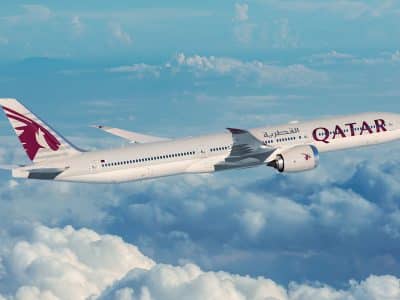Both leisure and business travel are set to continue on their recovery paths throughout the remainder of 2021, with the UAE in particular benefiting from Dubai Expo 2020 and other major events, a new survey from consulting firm Oliver Wyman has revealed.
Close to 76 percent of respondents surveyed indicated they expect to travel the same or more post-coronavirus for leisure.
“The summer travel surge is just the beginning of a recovery that seemed almost impossible a little more than a year ago,” said Michael Wette, head of IMEA Transportation & Services, Oliver Wyman.
“We expect to see a continued desire for leisure travel through the end of the year and travel providers should anticipate a sustained leisure recovery with strong bookings continuing at least through the end of the year,” he added.
“The travel industry continues to be a part of the diversification strategy for governments in the Middle East region and in the UAE in particular. There will be an even greater level of leisure and business travel due to major events and exhibitions like Dubai Expo 2020, the Dubai Airshow and ADIPEC being hosted,” said Wette.
However, international leisure travel continues to be the most impacted by the pandemic, as most travellers opt to visit destinations closer to home.
Chinese (81 percent), US (67 percent) and Australian (62 percent) travellers reported that they plan to travel domestically when restrictions are lifted. Whereas Canadians (54 percent) and most Europeans said they would favour international trips, although predominantly short-haul.
On the other hand, business travellers are more optimistic about the return of corporate trips with 75 percent of respondents expecting to travel the same as or more than they did pre-pandemic.
As such, business travel and bookings are forecast to increase in the near-term but changing company policies and the effectiveness of teleconferencing may reduce the long-term need for business travel.
 Michael Wette, head of IMEA Transportation & Services, Oliver Wyman.
Michael Wette, head of IMEA Transportation & Services, Oliver Wyman.
“Business travel is being driven by fear of missing out,” said Wette.
“The survey reveals that 80 percent of business travellers expect to travel the same or more after the Covid crisis, due to increased activity or in some case inefficient teleconferencing. Business travel will also be driven by the need to reconnect with teams, especially in the short-term,” he continued.
Business travel will also vary significantly by country. For example, business travellers in the US, China, and Australia are primed to travel significantly more than they did pre-Covid, while Europeans still plan to travel less than before the pandemic.
Globally, almost 70 percent of travellers are willing to enrol in a digital identification program, which would include vaccine status and other healthcare data. Vaccinated respondents are more willing to share their data, compared to unvaccinated travellers.
“The industry faces significant challenges, especially around the new Delta variant and a possible overall talent shortage, but demand for consumer travel will push the industry back sooner than we initially thought,” said Bruno Despujol, a partner with Oliver Wyman.
 Bruno Despujol, a partner with Oliver Wyman.
Bruno Despujol, a partner with Oliver Wyman.
Oliver Wyman’s survey revealed price as the most important criteria in travel decisions. This has been the case throughout the pandemic, with 66 percent of global travellers ranking price as one of their top three factors to purchase a flight.
As the height of the pandemic moves further away in people’s minds, cleanliness is becoming a less important factor in travel decisions, the survey indicated.
While more airlines now promote their environmental sustainability measures, only 17 percent of consumers globally and 12 percent of US consumers listed this among the top three factors when deciding about one flight over another. Overall, environmental sustainability measures continue to rank last across all three surveys.








